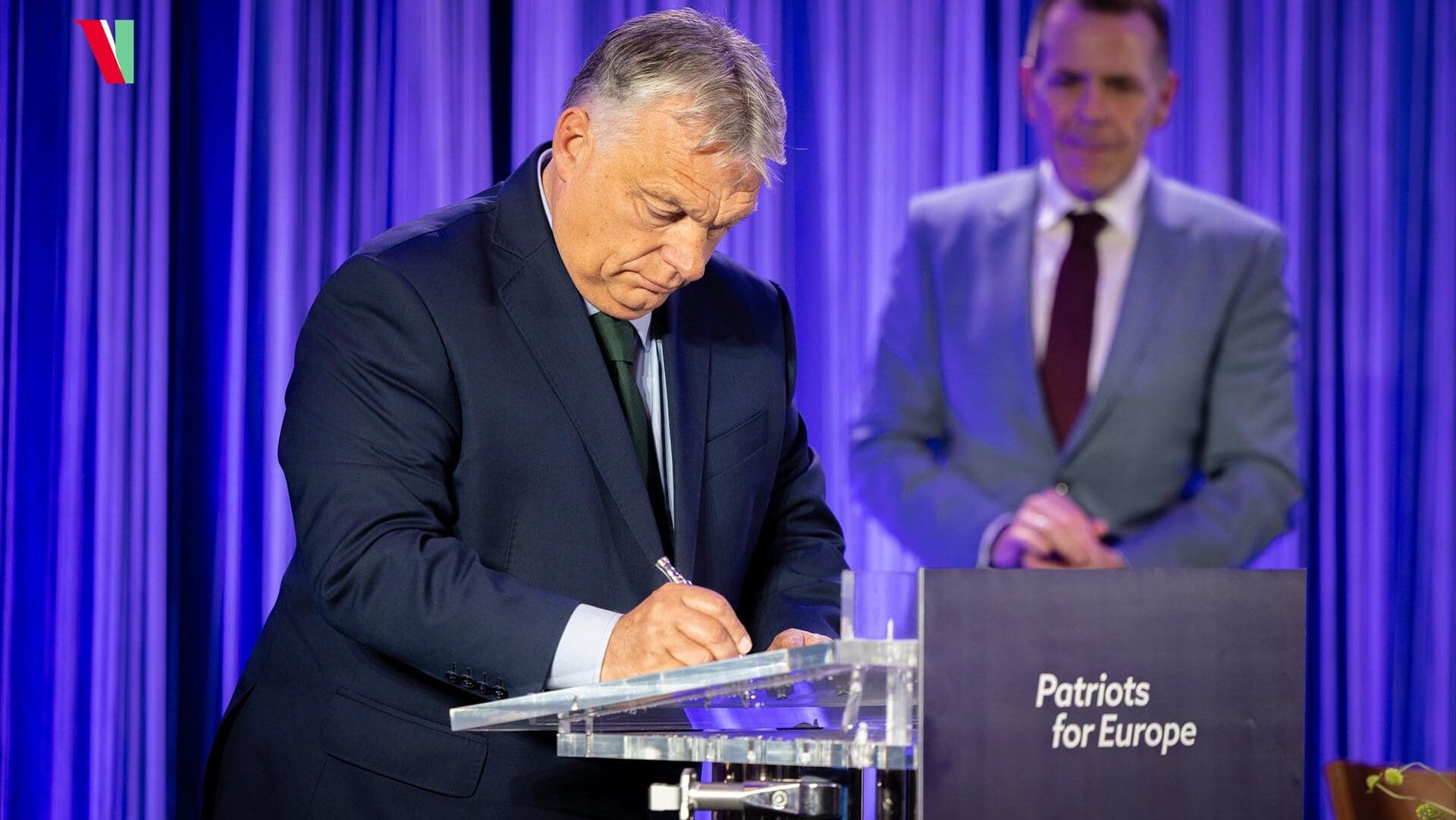
Hungarian PM Viktor Orbán
Photo: Orbán Viktor on Facebook, 1 July 2024
Viktor Orbán’s ambitious plans for his new European alliance, dubbed ‘Patriots for Europe,’ are close to fruition, the Hungarian prime minister reiterated during a TV interview on Monday, July 1st, promising to hold the new European Parliamentary group’s inaugural meeting on Monday, July 8th.
The Patriots were launched on Sunday as the political alliance of Orbán’s Fidesz, ex-Czech PM Andrej Babiš’ ANO, and the Austrian Freedom Party (FPÖ). The three parties hold 34 seats between them—enough MEPs, but four delegations short of creating a parliamentary group by themselves. So, in order to indeed make the Patriots an official force in Brussels, the group quickly needs to find new allies to join.
Orbán, simultaneously conducting talks with multiple delegations, is confident that he will succeed. “Another four or five days and many people will be surprised” at how quickly the Patriots would grow into a large parliamentary faction.
In fact, the prime minister said, the Patriots are growing “at an incredible speed” behind the scenes. “Very soon” the patriots will overtake Giorgia Meloni’s European Conservative and Reformists (ECR), he said, and become the third largest group in the European Parliament—and then later even the social democrat S&D which would make them second only to the European People’s Party (EPP).
Patriots for Europe is growing day by day! pic.twitter.com/ymquQ4Mv5s
— Orbán Viktor (@PM_ViktorOrban) July 2, 2024
The prime minister wouldn’t say who his most promising new allies ready to join the Patriots in the next few days are, but said that all of them are patriots who passionately love their nations and care about the future of the EU. “We are the ones who want to fix Europe,” Orbán said.
At this point, we know only of one party—Portugal’s Chega (Enough)—that officially signaled readiness to join, adding its two seats to the new group. This leaves the Patriots three delegations short of their goal, and Brussels is buzzing with speculations about who those would be.
Matteo Salvini’s Lega might be one, as the deputy PM was quite enthusiastic about the new group and hinted at considering taking his eight MEPs from Marine Le Pen’s Identity and Democracy (ID) over to the Patriots.
However, Lega would only put the Patriots at 44 seats—far below the desired third place in the Parliament, currently held by ECR’s 83-member-strong faction. Therefore, if Orbán is to be proven correct, he needs at least a couple of heavyweights under his banner, such as the Polish Law and Justice (PiS), the German Alternative für Deutschland (AfD), or Marine Le Pen’s French National Rally.
PiS, a member of the ECR which holds 21 seats, was reportedly considering jumping ship due to being at odds with Meloni over her willingness to cozy up to mainstream parties and support von der Leyen, although the Poles may use the option as leverage to increase the party’s influence in their own group.
The AfD’s 15 MEPs are currently homeless after being kicked out of the ID group before the election, and would very much like to join the Patriots—lest they be forced to create their own group with fringe and isolated ‘leftover’ parties—but we don’t yet know whether Orbán and the others around the negotiation table are comfortable with the idea of having the Germans in their fold.
Le Pen’s National Rally (RN) is the largest sovereigntist faction in the European Parliament, considered a game-changer for any bloc with its 30 seats. But as the de facto head of the ID group, Le Pen switching for the Patriots would likely result in a full-on merger between the two blocs.
That may have been the plan all along, rumor has it. A pre-agreed plan between Orbán and Le Pen to “rebrand” ID under a new banner and expand its ideological horizons to accommodate not only identitarian right-wingers but any and all who call themselves ‘patriots.’
An ID-Patriots merger, plus a few smaller delegations, would easily put the new formation over 90 seats and into third place in the Parliament. Add the two big parties (PiS and AfD), and maybe poach a few other parties from ECR and EPP, and maybe Orbán’s secondary goal—overtaking the social democrats’ 136-strong camp—would become achievable as well.
Another obstacle, however, is the tight deadline (July 4th) set for all parliamentary reshuffles. Given the French elections concluding only on the 7th, however, many delegations, including PiS and RN, have formally requested the European Parliament to extend the deadline until next week, which may also imply that they are truly considering Orbán’s offer.
